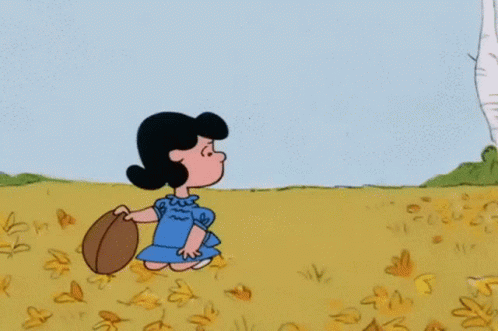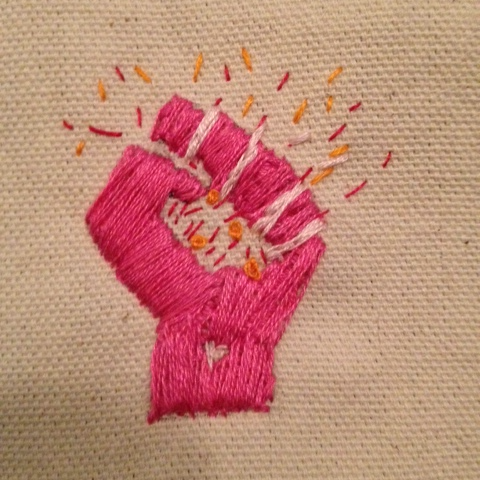Warm take: metaphor fail?

A mountain rescue squad member and his girlfriend go on a pretty technical climb in the Rockies. He winds up injured, and they can’t descend safely. So they call for an assist. The rescue attempt doesn’t end well — particularly for the girlfriend.
Something came up for me while ruminating about the so-called glass cliff: the inciting incident of my favorite so-bad-it’s-good movie. These days I've been grasping at straws, lol, and Cliffhanger is not really a “movie about work." Even though — spoiler alert — the lead bad guy strengthens his own position by killing the only woman on his team.
Early in my career, I had found a measure of success cleaning up corporate messes. One day, my next job was going to be another mess. A much bigger mess. When it became clear that I wasn't going to get the support needed to turn things around, I quit.
Back then, I didn’t have the words for why I had to quit, I just had a sense. Later, in the early '00s, I saw Michelle Ryan and Alexander Haslam’s term “glass cliff.” I thought, mmm-hmmm, exactly.
From Ryan and Haslam's work in the '00s: “The glass cliff refers to the phenomenon whereby women are overrepresented in leadership roles associated with high risk and an increased chance of failure.”
More recently, work led by Ryan's colleagues Thekla Morgenroth and Teri A. Kirby found that underrepresented leaders can face glass cliff conditions – yet, not in every domain. The glass cliff is real, they say, and nuanced: it's not ubiquitous or consistent. And, it's worthy of further study. So stay tuned?
Last week, I searched my inboxes for "glass cliff," mostly to find what else I've written on the topic. I also found a May, 2018 episode of Call Your Girlfriend, where Ann Friedman and Aminatou Sow assailed the term "glass cliff" as a bad metaphor, and “an imprecise term for sexism in the world.” When you have to clean up after a dude at work, they propose glass broom, or glass shovel.
In my experience, the glass cliff is more than being asked to clean up someone else’s mess — it’s being asked to do the work without the unambiguous support, resources, or time required to follow through.
It’s also about consequences. When a broom or shovel breaks, you’ve got a mess. But you’re still standing on solid ground.

We all start a job wanting to believe. Our bosses, like Lucy, may have told us that we've got support. Like Charlie Brown, we want to trust the person holding the football.
So is it a glass football? Nah.
You could go down, like Chuck, maybe in a rain of shards. You’d be bruised and embarrassed, but still intact and on terra firma.
Morgenroth, Kirby and their co-authors call glass cliff "nuanced," noting that "glass" in the metaphor points to the "subtlety of the phenomenon."
In all of its imprecision, when present, the glass cliff evokes a possibility of sliding downwards, no hope of finding purchase, to a career-ending failure.
Thanks so much for reading this Warm Take, which may have typos or inelegant turns of phrase – which I'll likely find immediately after hitting "send," and may fix later on, on the Internet.
I love hearing from you, so if you have any management or workplace questions or topics you'd like to see covered here, reading recommendations, or comments on this issue, please do send me a note!
May you and your loved ones be safe, healthy, and free,
Links
Researchers/research
- Michelle Ryan and Alexander Haslam wrote the first scholarly articles about the glass cliff; see Uncovering the glass cliff, via University of Exeter.
- The who, when, and why of the glass cliff phenomenon: A meta-analysis of appointments to precarious leadership positions, by Thekla Morgenroth, Teri A. Kirby, Michelle K. Ryan, Antonia Sudkämper; Psychological Bulletin, 146(9), 797–829 (September, 2020)
- Opting out or Pushed off the Edge? The Glass Cliff and the Precariousness of Women's Leadership Positions, Michelle K. Ryan, S. Alexander Haslam, Mette D. Hersby, Clara Kulich, Cate Atkins; Social and Personality Psychology Compass, Volume 1, Issue 1, 266-279, First published: 11 October 2007
- The Glass Cliff: Evidence that Women are Over-Represented in Precarious Leadership Positions, Michelle K. Ryan, S. Alexander Haslam; British Journal of Management, Volume 16, Issue 2, June 2005, Pages 81-90, First published: 09 February 2005.
- Introducing...the glass cliff, by Michelle Ryan and Alex Haslam, BBC News, ast pdated: Friday, 28 May, 2004, 09:28 GMT 10:28 UK
Media
- The Glass Cliff Phenomenon and Women of Color (Explainer), January 31, 2024, Catalyst Blog
- From Glass Ceilings to Glass Cliffs: A Guide to Jumping, Not Falling, by Keith D. Dorsey, MIT Sloan Management review, March 13, 2023. “A ‘glass cliff’ opportunity may be just the career boost that underrepresented leadership candidates need, but it must be approached carefully.” Hmmm.
- For Black Women, Breaking the Glass Ceiling in Their Careers Can Quickly Turn Into a Glass Cliff, by Derek Major, Black Enterprise, December 19, 2022
- The Glass Shovel Brigade, Episode 146, Call Your Girlfriend, by Ann Friedman and Aminatou Sow, May 25, 2018.
- Women in Power Are Set Up to Fail, NY Times Magazine, 8th Annual Year in Ideas, Clive Thompson, Dec. 12, 2008 (gift link)
A few back issues where I touched on the glass cliff
- Warm Take: online learning. Oct 29, 2023. Again and again, Carly Fiorina surfaces, almost a patron saint of the glass cliff. Tapped to lead HP, and unceremoniously fired when the share price dropped. As she had predicted it would, in the immediate aftermath of a major acquisition. Subsequently, all kinds of weird ethical stuff went on at HP, including, but not weirdest: her (male) successor had to resign due to expense report improprieties, reportedly covering up dinners with someone he wasn't having an affair with. Also, the board spied on people. Where is the limited series/podcast.
- Warm Take: Rebrand This. May 7, 2023. Generally, I think you can look for a glass cliff anywhere you'll find a "female founder" situation in the SV-tech-VC universe.
- Warm Take: Feminine =/= Feminist. June 14 2020
- Always Be Coaching: On Management #36. Apr 8, 2019
Ok, I might have to watch Cliffhanger sometime soon, while organizing around the house



